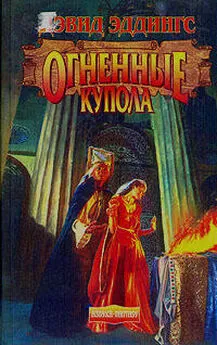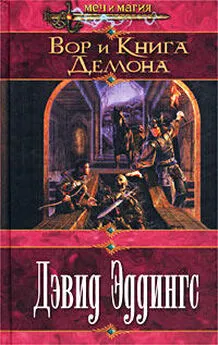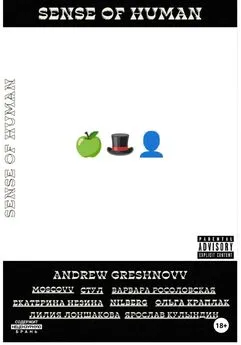David Steindl-Rast - Words of Common Sense
- Название:Words of Common Sense
- Автор:
- Жанр:
- Издательство:Templeton Foundation Press
- Год:2002
- Город:Philadelphia London
- ISBN:1-932031-43-X
- Рейтинг:
- Избранное:Добавить в избранное
-
Отзывы:
-
Ваша оценка:
David Steindl-Rast - Words of Common Sense краткое содержание
Words of Common Sense - читать онлайн бесплатно полную версию (весь текст целиком)
Интервал:
Закладка:
Expecting nothing, a plowman plods along. With a clank, his plowshare hits hidden treasure. What would you do? He doesn’t think twice. “In his joy he goes and sells all that he has and buys that field” (Matthew 13:44). Another — a merchant in search of fine pearls — is already on the alert. He knows a priceless pearl at first sight — and he goes for broke (Matthew 13:45–46). Common sense is as daring as it is patient. “Nothing wagered, nothing won.”
4. Trust in God, yet act as if everything depended entirely on you alone.
In a particularly colorful series of parables, the main characters are, above all, enterprising. Some industrious servants — firstcentury venture capitalists — double the money their master entrusted to them. With great determination, a man makes a nuisance of himself by coaxing his friend out of bed in the middle of the night and gets what he needs. An obstinate old woman pesters a judge so relentlessly that he promises a just sentence on her behalf even though he is corrupt to the bone. A manager who has embezzled money and is about to lose his job feathers his bed for an early retirement by quickly embezzling a good deal more. These are not edifying stories featuring models to be imitated, but jokes that make a point: Doesn’t common sense tell you that one has to use one’s wits to get ahead in life? You know this? Why then don’t you put some effort into making this a better world, a world run by common sense? Why don’t you start now? As the Bantu say, “If you want to sweep the hut, why do you sit on the broom?”
One who rides in a litter doesn’t realize how far it is to town.
— HAUSA
Those who wear pearls do not know how often the shark bites the diver.
— ETHIOPIA
Mr. Fullbelly doesn’t know Mr. Hollowbelly.
— GERMAN
One eats the roast; the other licks the spit.
— HUNGARIAN
One who hasn’t carried your burden knows not its weight.
— HAYA,EAST AFRICA
And yet, in our spiritual practice, the supreme goal of all effort is to make no effort. This, too, common sense teaches us — the sense we have in common with the “birds of the air” and the wildflowers. “Consider the ravens: they neither sow nor reap, they have neither storehouse nor barn, and yet God feeds them… Consider the lilies how they grow; they neither toil nor spin; yet I tell you, not even Solomon in all his glory was arrayed like one of these” (Luke 12:24–27). In the midst of acting as if the outcome depended entirely on us, we can live carefree lives because God cares.
How do we know that God cares? We know that God cares because we care. This answer is the most staggering implication of Jesus’ parables: To follow the guidance of common sense is to share the mind of God. Decades before the parables were written down, Paul put his finger on this crucial point. “The Spirit reaches the depth of everything, even the depth of God” (1 Corinthians 2:10). In the parables, Jesus presupposes precisely this. He often speaks of the unique intimacy and mutual understanding between a father and a son. Is not this deep understanding implied when we call God “Our Father”?
When in Rome, do as the Romans do.
— LATE ROMAN
When you visit a frog, don’t ask for a chair: squat.
— HO,WEST AFRICA
When you go to a donkey house, don’t talk about ears.
— AFRICAN AMERICAN
It may seem an outrageous claim that we humans share the mind of God, and yet in some situations most of us spontaneously act on this conviction. For example, when a theologian claims that God predestines some creatures to eternal suffering or excludes from heaven children who died before they were baptized, common sense revolts. We are convinced that this cannot be so. On what could our reaction be based if not on a deep-seated conviction that we can somehow know the mind of God — at least in matters that are vital for us humans?
The finest parables of Jesus evoke strong common-sense attitudes and trigger the insight that God shares these attitudes. “What father among you, if his son asks for a fish, will instead of a fish give him a serpent; or if he asks for an egg, will give him a scorpion?” (Luke 11:11–12). In Matthew’s gospel, Jesus asks, “Who among you, if his son asks for bread, will give him a stone? If you then… know how to give good gifts to your children, how much more will your Father who is in heaven give good things to those who ask him?” (7:9–11). Jesus stretches the notion of commonness so far that common sense allows us to sense even God’s sentiments. The pattern “If you
There is no elbow that bends outwards.
— CHINESE
You cannot coax the morning glory to climb the wrong way round the corn stalk.
— AFRICAN AMERICAN
You can lead the horse to the water, but you can’t make it drink.
— ENGLISH
.. then all the more, God” is the basis for many parables.
The best known of all Jesus’ parables is based on this pattern. We call it the Parable of the Prodigal Son, but it is really about the feelings of a prodigal father. We must not project today’s stereotype of a father on Jesus’ notion of God. The father in this story stands for God, but he acts every bit like a Jewish mother. He sees his wayward son returning from afar (obviously, he has been watching and waiting at the window); he smothers the son’s self-accusations in hugs and kisses; he quickly notices the boy’s dirty clothes and makes him change into clean ones; he cooks up a storm and prepares a feast. (We will come back to that feast.) When the older, law-abiding son objects to all this festivity, the father insists: “We do have to make merry and celebrate, for your brother was lost and is found”(Luke 15:32).
If we rejoice when a wayward child returns home, how much more does God rejoice? There are parallels to this in other parables: the joy of a shepherd over a lost-and-found sheep (Luke 15:4–7); the joy of a woman who turns the whole house upside down until she finds the coin she had lost
If you are not going to eat your porridge, stop stirring it.
— HAUSA
If you ferry at all, ferry right over.
— CHINESE
(Luke 15:8–10).Who doesn’t know how precious and important something becomes the moment we lose it — or are merely afraid to lose it? Those of us who spend more on repair bills than our old watch is worth will feel deeply with the gardener who pleads with the owner to give an obviously worthless fig tree just one more chance (Luke 13:6–9). Even to such a “silly” sentiment, Jesus applies the pattern, “If you…how much more, God.”What makes this argument so convincing is that it is based on common sense. When we let these sayings of Jesus sink in, we discover how profound they are — and at the same time how outrageous.
The parables are profound because it is common sense that makes them tick, and common sense — like the Tao and the Logos — is the deepest undercurrent of the cosmic flow. They are outrageous because they challenge time-honored conventions: for instance, the notion that we must merit what we receive — wages must be based on service rendered. In one parable, the day laborers are all paid a day’s wages regardless of whether they have sweated all day or were hired only an hour before day’s end. By conventional standards, this is
Nobody’s family can hang up the sign, “Nothing the matter here.”
— CHINESE
There are no cattle without a dung heap.
— CHUANA
Every family has a skeleton in the closet.
— AMERICAN
Every cabin has its mosquito.
— AFRICAN AMERICAN
Chicken says:“If you scratch too hard, you come upon the bones of your mother.”
— AFRICAN JABO
unfair, but common sense tells us otherwise. How could they have worked earlier if no one hired them? And how could they and their families eat that evening unless they received a day’s wages? Admittedly, even in the God Household there is a realm where merit has its proper place. It does matter what we do, or fail to do, with our talents.Yet, isn’t our very existence pure gift to begin with? Ultimately, all is grace.
5. A new order: Not drudgery,but celebration. What makes a parable tick is the ticking of a time bomb that goes off the moment we get the point. Common sense blows conventional notions to bits.
Even the notion of “serving God” is exploded. No matter how much we are accustomed to thinking of our relationship to God as that of servants to a lord and king, Jesus uses the leverage of common sense to lift us out of that rut. Isn’t the King of Heaven your Father? “‘What do you think, Simon? From whom do the kings of the world take tribute or taxes? From their children or from strangers?’ and when he said, ‘From strangers,’ Jesus replied, ‘Then the children are exempt’”(Matthew
Need breaks laws.
— DUTCH
Law makes law-breakers.
— BANTU
The law is a spider’s web: Big flies break through, but the little ones get caught.
— HUNGARIAN
17:25–26).You are princes and princesses: You are tax exempt!
Once we realize this, we no longer drudge along in servitude but freely and joyfully offer our gifts to God. “The spirit you received is not the spirit of slaves, bringing fear into your lives, but the spirit of sonship in which we call out, ‘Abba, Father!’” (Romans 8:15). Such common-sense teaching is heady wine. Will anyone put new wine like this into old wine skins? “If one does, the wine will burst the skins, and the wine is lost, and so are the skins”(Mark 2:22).
From early on, however, the followers of Jesus have tried to do just this: tried to contain the new spirit within the old forms.The result is compromise — patchwork. “No one sews a piece of un-shrunk cloth on an old garment; if he does, the patch tears away from it, the new from the old, and a worse tear is made (Mark 2:21).That’s common sense.Yet, for almost two millennia now, church institutions have suffered rift after rift because of precisely such patchwork.
One handy example is fasting as a prescribed religious observance. Voluntary fasting can be a healthy practice. There are many good reasons for fasting, but earning God’s favor thereby is not one of them. God’s love — like a mother’s — need not be earned, only celebrated, Jesus held. He did not fast; in fact, they called him “a glutton and a drunkard” (Matthew 11:19). His favorite image for life in fullness was a great feast, a royal wedding feast, to which everyone — high and low, rich and poor— was invited. “Can you make wedding guests fast?” (Luke 5:34), he asked. He did not want his followers bound by religious observances but freed for a great celebration. Soon, however, they reinstituted fasting on the grounds that Jesus, the bridegroom, was “taken away from them” (Matthew 9:15), in spite of the fact that, in the same gospel, he was quoted as saying, “I am with you all the days until the end of time”(Matthew 28:20). In this, as in many other points, conventional religious practice won out over the spirit of Jesus. And yet, the same religious institutions that are to blame for this shift of focus deserve our thanks for having preserved for us the common-sense sayings of Jesus. Now, as then, these sayings challenge prevailing practices.
One of Jesus’ most amusing parables addresses the tension between ascetic religious observance and celebration in the Spirit. We might call it the Parable of the House Left Standing
Empty (Matthew 12:43–45). Here the classical pattern of Jesus’ parable telling has not been preserved, but we can easily restore it.
Step one, the opening question: Don’t you know what happens to a house when you sweep it and decorate it and then let it stand empty? Think of a holiday cabin on the shore or in the woods. Say it came to you as an inheritance. You are thrilled; you dream already of parties you will have there and you spend every spare hour fixing it up. Soon it looks spicand- span. But just when all is ready, your children lose inter- est;other plans interfere,weekend after weekend.What do you expect that place to look like when you finally return? Moldy, mildewed, full of mice and squirrels, bugs and spiders.
Читать дальшеИнтервал:
Закладка:









